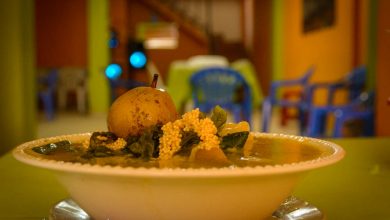
Felice and Rafaelle Clemente, 53 and 52 respectively, are two Italian brothers who live in the tranquil city of Riano, only 28 kilometers from Rome. They dedicate their lives to Andean music, as you see in their Trencito de los Andes (Andean Train) and El Laboratorio de los Huevos Cuadrados (the Laboratory of Square Eggs). But what are two Italians doing so deeply engaged in Andean music. For them, it was an arrow to their hearts when they first heard Andean panpipes (zampoñas) on Italian television. Later, as adults, they came to South America to study it and fell in love.

Now, they have an incredible faith: Andean music has an unusual level of development and is the key for the creation of a new music. Despite their ideas, for many Peruvians Andean music continues to be a primitive music, out of tune, boring and one that is only made special when seen as having something “mystical”. The Clemente brothers have removed all the “Pachamamist” ideas and have treated it with a rigor normally reserved for jazz and rock. They have looked at it inside and out for thirty years, now, as no one else has ever done. In the last decade they were able to express their ideas with the creation of what they call micronic scores, that is a 2.0 score that can finally allow the oddities of this music to be written down.
The Clementes have dedicated themselves to what seems an impossible enterprise. No one in Peru seems to take Andean music seriously and even less approves of two Italians doing it. They are uncomfortable. Now they are growing old and are fearful their work will die with them, that humanity will lose this unique opportunity to improve itself. From their side of the world, they too are victims of the silencing struggles between the West and the Andes. Paradoxically, they know, perhaps more than others, how to build the bridge over the gorge that separates us. Will we listen to them?
What is so special about Andean music?

Felice: We have liked Andean music since we were children for reasons we do not understand. I do not know why. It is a music that grows in the encounter of two worlds. When the Spanish came to the Andes they found a very developed civilization and its music was an expression of that great advance. It was not a primitive music. It had considerable development. Later all the influences of the world arrived in the Andes, beginning with European musical history which was woven in with native musical curiosity. Then slaves came from Africa with their own music and all of this has now joined with other musical systems and sonorities that come from North American music, Arabic scales from the far East, and more. Andean music brings together almost all the music of the world and enjoys an instrumental pantheon that is almost without equal at the level of winds, as well as strings, percussions, and any other type of instrumentation. The variety and quantity of elements that make up this music is truly surprising.
When you listen to musical groups accompanying dance troupes you hear instruments that are out of tune and problems of rhythm though many say this is just part of the magic. Are they performing the music well or bad?
Raffaele: Maybe you have only heard it played badly, a mediocre performance with poorly made instruments. If we are speaking about jazz, rock of trova music, no one is surprised to hear about good music or bad music, so why should it not be the same with Andean music? It is a little bit like you said earlier about the television news, “how beautiful Italian sounds.” If one does not understand Italian and just listens to the person reading the news everything sounds good, just because Italian sounds good. We can talk about the “Grammelot” that was a practice of the middle ages, of the minstrels. In order to entertain their audience, they simulated any language, such as German, French, Italian, Turkish, or Arabic, by simply evoking its sounds. They said things with no significance but they did so with the sounds of this or that language. People laughed like mad. Chintatá, for example, makes a Grammelot of Andean music when they play a chakiri. It is a Grammelot of a chakiri. I mentioned Chintatá but we could say the same thing about Inti Illimani, Illapu, Kjarkas or other recognized stars of Andean Music. They play “traditional Andean music” but make up a Grammelot of a language that they do not know how to speak. They heard it in the distance and they thought it sounded more or less like this and then they make it up in their own way.[/vc_column_text][/vc_column][/vc_row][vc_row][vc_column][vc_column_text]In Peru, we have an interest in preserving our heritage, our patrimony, including our original languages and our traditional rhythms, but it looks like we have not been doing this with our eyes placed where they should be. Where are we looking?
Felice: This music should be considered and treated as accomplished and well developed, as a true domain of human knowledge and not just as something musical. The Peruvians do have this problem [of not taking Andean music seriously.

What other problem do you see, Raffaele?
Raffaele: Me? The generalized perception is that this is a losing music, historically, commercially, and within its native countries. It is especially thought of as the music of losers because it is played by the those humblest, the poor and the lost ones of these lands. In order to see a concrete and tangible patrimony among such disgrace, you would need illuminated Peruvians.
Felice: Furthermore, when you see how it is played you can never imagine how difficult it is to do so. You might think “if that ignorant peasant can do it” but you cannot imagine how difficult it is to know it, understand it, and perform it. There is another prejudice, just as wrong as the earlier. “Because I am a Peruvian it comes to me naturally” as if it were a heritage transmitted in the blood. That is not true. No matter how Peruvian you are, when it comes to any given native expression, you are almost as much a foreigner as I. That is hard for Peruvians to take on.
[/vc_column_text][/vc_column][/vc_row][vc_row css=”.vc_custom_1479446807317{margin-top: 20px !important;margin-bottom: 20px !important;}”][vc_column css=”.vc_custom_1479446649196{padding-top: 10px !important;padding-right: 10px !important;padding-bottom: 10px !important;padding-left: 10px !important;background-color: #ededed !important;}”][mnky_service icon_fontawesome=”fa fa-wpbeginner” title=”Felice y Raffaele speak” position=”sb_center”]Raffaele: Our affirmations are the fruit of what we have observed and put together through an arduous work of observation. Finally, we alone are responsible for the value of our words and we must not nor can we attribute them to anyone but to ourselves. We cannot, nor do we want to speak for other people. They would probably never say things like those we say.
Felice: Today we find a more Pachamamist trend that seems to me a completely wrong approach for Andean music. It does not lead us to anything musical which is where you will find substance. It is not necessary to invoke any divinity because the music is only sustained musically. There are new things, contributions, achievements which can develop through micronics and that are of global interest, valid for all the musics of the world.
Raffaele: I carry a whole train of complex and advanced understandings which have not been passed on. Personally I believe that if there had been anyone – a country, institution, or person — seriously interested in promoting, protecting, and motivating this musical work, someone who thinks this heritage is deserving of investing even 1 sol, that person would have already contacted us. Nevertheless, it all continues to be our responsibility. If here had been one single person on the planet who could do it, would it have value? Would that capacity be worth something?
Felice: There is an unfortunate existential part of our experience which is the economic and its constant humiliations. We have spent our whole lives telling ourselves that at some moment it would all work, all of our lives. But, on the other hand, we have also had incredible satisfactions. Many of them behind closed doors, with each other and always through our music. I have hoped that it all, I do not know when or how, will result in something. I live waiting to see how it will be and when it will [/mnky_service][/vc_column][/vc_row][vc_row][vc_column][vc_column_text]This thing of ownership, of “our Peruvian music?”
Felice: Pretending to be the owners of something you really do not know is grotesque. You may be from Lima, from Chorrillos, but how does that make Andean music more yours than mine?
Why do we maintain in Peru the old idea of “don’t take my things”?
Raffaele: I think that the Spanish conquest should be revisited in today’s Peru with a perspective that is closer to the reality of what it was. It is fundamental to understand that it was not a simple issue of black and white, with the good people on one side and the bad on the other, and that they fought each other but the bad ones won and pity the good ones. It just wasn’t that way. It is too simplistic to continue living in the shadow of that idea and it is not useful to Peruvians or Westerners. It makes Andean music seem the music of the disappointed, of the beaten, of the raped, and so on. As a result, it is not valued, but that is ok because they had been beaten down for 500 years and everything sounds like a justification. In the mean time they do not take care of their musical heritage that has unusual and objective worth.

What council would you give to the musicians and cultural managers of Peru?
Raffaele: We have a huge heritage to offer and we are seeking partners. It is that simple and direct. It was always thus.
Felice: Without our intermediation it does not seem to me that anything will happen. So, our goal is the make something come together from all this. We have the keys to a latent heritage. Through micronics I can see the birth of a new music, obviously of Andean roots.
It seems to me that this is an important opportunity, and we need to start working seriously with people committed to carrying this project forward, far more than what has been done up to the moment. Beyond tradition, beyond Pachamamismo. There are many interested people. The problem is not one of the quantity of people, it is the level in which it is all done, the seriousness of their interest, and, here comes my provocation, to give life to a new music we must put in much more effort.[/vc_column_text][/vc_column][/vc_row]




